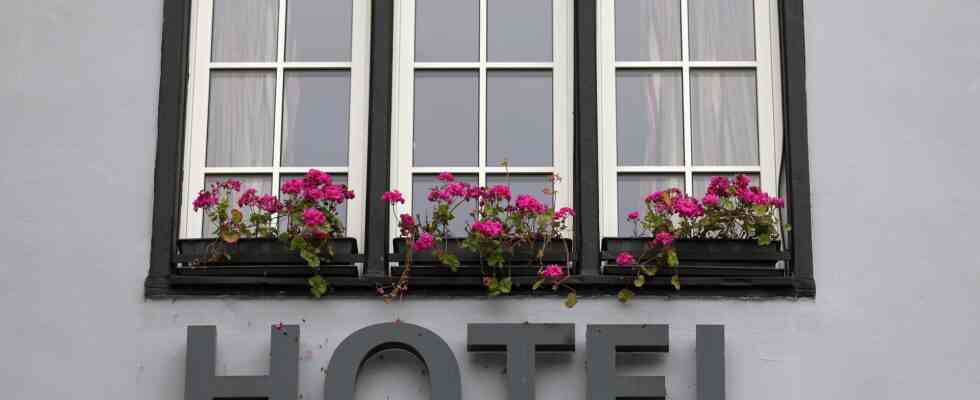Status: 10/10/2022 9:59 am
Hotels, guesthouses and other accommodation establishments in Germany counted more guests for the first time in August than before the corona pandemic. However, it is questionable whether the trend will continue.
This August, tourism in Germany exceeded the level before the Corona crisis for the first time since the outbreak of the pandemic. In August, when summer holidays were at least part of the time in all federal states, hotels, inns and guesthouses recorded 58.2 million overnight stays by guests from Germany and abroad.
According to the Federal Statistical Office, that was four percent more than a year earlier and 0.6 percent more than in August 2019, i.e. the year before the outbreak of the pandemic in Germany.
Foreign tourism is increasing rapidly
“A very strong increase was registered in overnight stays by guests from abroad,” according to the statisticians. They increased by 75.7 percent to 8.9 million. “Cross-border tourism in Germany is still a long way from the pre-crisis level,” it said. It was down 17.5 percent from August 2019, while the number of domestic guests grew by 4.8 percent.
The number of overnight stays by guests from Germany fell by 3.1 percent compared to August 2021 to 49.3 million.
Camping is becoming more popular
The majority of tourist overnight stays, a total of around 52.8 percent, were in classic hotel establishments such as hotels, inns and guesthouses. 23.2 percent were vacation rentals and similar accommodation facilities, while campsites accounted for 16.0 percent and other accommodation such as preventive and rehabilitation clinics or training homes for 7.9 percent.
“What is particularly remarkable in comparison with previous years is the development of the number of overnight stays on campsites,” it said. At 9.3 million, these were 14.7 percent higher than in August 2019.
Citizens must save
According to experts, however, it is questionable whether the upward trend will continue due to high inflation and the expected loss of purchasing power. “It remains to be seen to what extent the increased cost of living will affect people’s desire to travel in autumn and winter,” said Norbert Kunz, Managing Director of the German Tourism Association (DTV).
In September, the inflation rate in Germany reached 10.0 percent, its highest level in decades. Tightening energy prices are also a major burden for citizens. Many consumers react to the loss of purchasing power by making savings.
The chief economist at Hauck Aufhäuser Lampe Privatbank AG, Alexander Krüger, assumes that “many consumers will continue to put the brakes on spending”. It is not to be expected that state relief such as the planned gas and electricity price brake will bring about a change in mood.

